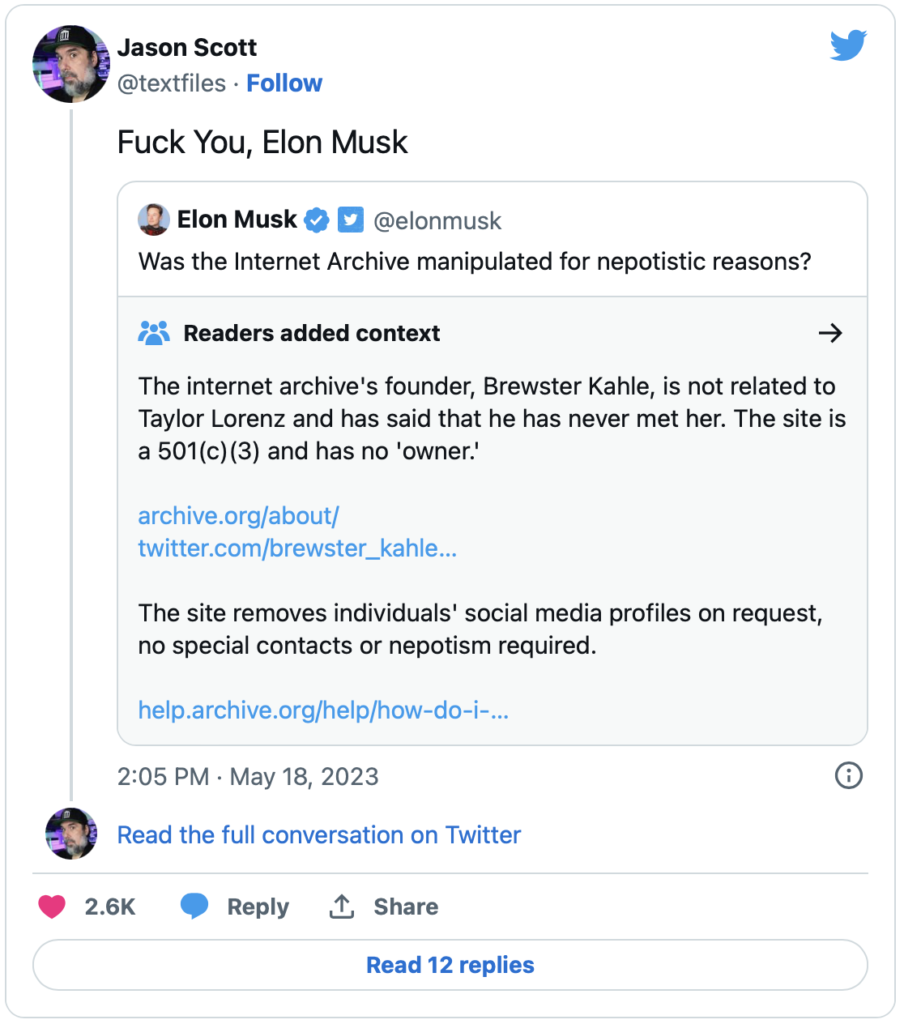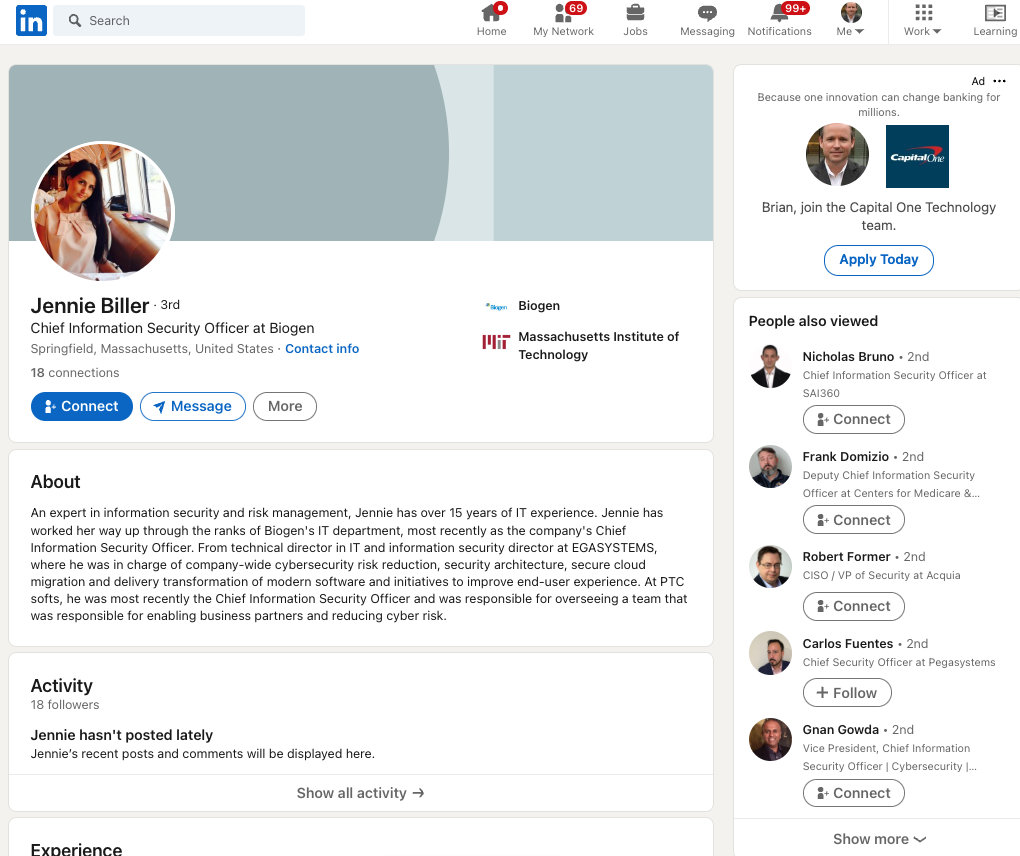 Mobile ended up being dominated by two incumbents: Apple and Google. That doesn’t mean it wasn’t disruptive, though: Apple’s new UI paradigm entailed not viewing the phone as a small PC, a la Microsoft; Google’s new business model paradigm entailed not viewing phones as a direct profit center for operating system sales, but rather as a moat for their advertising business.
Mobile ended up being dominated by two incumbents: Apple and Google. That doesn’t mean it wasn’t disruptive, though: Apple’s new UI paradigm entailed not viewing the phone as a small PC, a la Microsoft; Google’s new business model paradigm entailed not viewing phones as a direct profit center for operating system sales, but rather as a moat for their advertising business.
Source: AI and the Big Five – Stratechery by Ben Thompson
I think it’s worth noting something here. Just before this paragraph is this:
The PC was disruptive to nearly all of the existing incumbents; these relatively inexpensive and low-powered devices didn’t have nearly the capability or the profit margin of mini-computers, much less mainframes. That’s why IBM was happy to outsource both the original PC’s chip and OS to Intel and Microsoft, respectively, so that they could get a product out the door and satisfy their corporate customers; PCs got faster, though, and it was Intel and Microsoft that dominated as the market dwarfed everything that came before.
It seems to me that Microsoft was guilty of the same sin as IBM when it came to mobile. IBM viewed PC’s as tiny little mainframes. Microsoft viewed “smart” phones as tiny little PC’s.
Whenever people write like this, it nags at me, that a massive, multinational corporation’s motivations could be represented by a single viewpoint, held by a single person. But then I force myself to relax, realize that the organization’s actions really do boil down to being explained like this, and commit to the simplification for narrative purposes. So, acknowledging this… What “IBM” couldn’t “see” was that, while “limited” in relation to a mainframe, the PC was capable enough to do things that mainframes couldn’t do. I’ll never forget the Aha! moment I had in my first engineering job. “I was there, Gandalf; 3000 years ago.”
I was working for a small (80-ish people) company that made air compressors. They had just gotten bought by a huge, multinational air tool conglomerate, and the former owner had spun off a tiny portion of the tiny business to a new, separate company. As part of the new owner’s investment, the company was buying new PC’s for “the office.” Five of us got new, genuine IBM, i486DX2 66 PC’s with all the goodies, including real IBM Model M buckling-spring mechanical keyboards. They were glorious.
In an old garage, next to the main building, was a pile of “stuff” leftover from the rearrangement. In that pile, I found an internal, 4800 bps modem, and a full-length “mainframe” card, for attaching to a token ring network, and emulating a terminal. I installed both into my PC, and got my boss to let me get a Prodigy account. (And discovered Doom.) The “mainframe” card allowed me to connect to the mainframe, but I don’t (and still don’t) know anything about mainframes, so I just left it there.
Then my boss asked me to do a BOM comparison between 2 similar compressor models, and pointed me at two giant, mainframe printouts on green-barred, spoked paper, in those terrible binders with the variable-length metal straps to hold them together. They were about 2 inches thick. I started to compare the paper reports for about a minute before I had a thought…
I got the lady who ran the mainframe (an IBM System/36) to make me BOM reports for both compressor models. This apparently took an entire program to be written, and it was no wonder that mainframes were already dying by 1993, but I digress. I was able to download the reports to my PC over the “mainframe” card. Of course, these reports, being simple lines of text, were only a megabyte or so, but I had eight megabytes in my fancy new PC! So I was able to import both BOM’s into Quattro Pro, and do some spreadsheet manipulation to show the differences.
This sort of simple, quick, ad-hoc query and reporting capability, enabled by spreadsheets, has been the backbone upon which all corporate business has been run for almost 30 years. A lot of company data now lives in cloud services, which have their own query and reporting tools, but my perception is that Excel is still a core tool that the majority of people in the Fortune 1000 are using to manage their workflows. Like, you could take away literally everything else but Excel and email, and you’d be fine. It would take some adjustment, of course, but the business would carry on. That’s how critical it is.
IT managers in large corporations like to think that their multi-million dollar IT systems are special, and there’s an attitude that the company couldn’t exist without them now that they’ve been implemented. Entire kingdoms are built around them in the modern, corporate, fuedal-like system present in every Fortune 1000. However, the people running these systems don’t seem to understand that there is invariably enormous activity in the company devoted to shoring up these systems with ad-hoc tools in Excel, simply because the team responsible for the system will never have the time to implement the customizations the users need to make the system truly useful for their work. At least, if they do know it, they ignore it, and they can, because they are not held accountable for the vast quantities of technical debt and wasted work because of their compromised implementation, which stopped short of all the promises upon which the system was sold to the monarchy. The true costs were never actually presented, and now that “shortage” not only gets spent, but gets duplicated all over the company, because spreadsheets do not “scale.”
I didn’t start out to make that point, but this is why I write: to “work out my thinking,” as I state in the sub-title of this blog.
Why do I know? Because if I could sum up my 27-year career, the central theme of it would be creating applications to replace terrible, shared Excel spreadsheets with — hopefully, less terrible — web and native applications, tailor-made for the workflow the spreadsheets were supporting. I can count 13, right off the top of my head, and I’m sure I’m forgetting some of the smaller ones. I’ve spent about 21 of my years in Fortune 250’s, so maybe I have a jaded view, but my feeling is that this extrapolates through all big companies, world-wide.
This is what IBM missed. People know what they need, and will use “manual” effort to get around corporate IT lethargy. At first, it was routing around mainframes, and their impossibly slow development times. Now it’s every large, “corporate” system, like CRM or ERP or PDM, and their impossibly slow development times. The limitation of “the mainframe” wasn’t in its hardware or its development language, it was in the system of fiefdom that is the corporate budget allocation system, and the unintended consequences it produces, specifically the unaccountability inherent in the fact that the monarchs can’t understand the technical and logistical limitations in customizing a large system, and the true costs are therefore elided in the endless budget cycle. And when an aging system is deemed fit to retire and replace, the whole cycle starts all over, with corporate IT creating a system just shy of what’s really needed, and end-users creating spreadsheets to backfill the gap.
A lot of these kinds of systems — particularly HR — have been moving to the cloud. Why? In my estimation, it’s not because they’re cheaper, even on paper. It’s because those systems are fully-formed, and include all the end-user-facing querying and reporting needed to make the system useful for every requirement. Fortune 500 companies could have made a streamlined version of, say, Workday, for their specific, internal use, but corporate IT — as a standalone, ivory tower, ultimately beholden only the the CEO, who couldn’t care less — could never figure out how to work closely enough with the user community to address all of their needs. So now, users have to put up with yet-another-end-all-be-all system, designed to address the needs of every company on earth. But! At least, once they figure out the workflow to get what they need, it’s all downhill from there. Here’s the key: at least it’s possible without Excel.
More and more workflow operations will continue to expand into cloud-based services, but it’s only possible to do this with services every company needs. This is why we’re seeing a deluge of advertising for HR apps, even on TV, each designed to hit a different company size and price point. It’s not possible to do this with, say, PDM applications, so companies like mine are going to continue to be hamstrung with a systems like Integrity/Windchill. On the one hand, it’s become an important tool which must be used to get products out the door. On the other hand, it doesn’t do a whole bunch of stuff people really need it to do with the data it already has — and it never will — so there are a whole bunch of Excel spreadsheets running loose in the company that duplicate the data, waste the manual effort, and do the things that need to be done, which IT has no knowledge of, and does not care about, because it doesn’t show up as a liability against their budget. And the situation will continue, for the foreseeable future.









